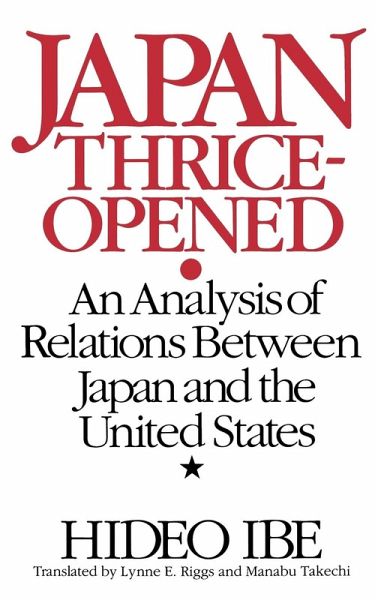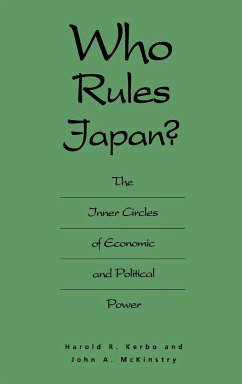
Japan Thrice-Opened
An Analysis of Relations Between Japan and the United States
Versandkostenfrei!
Versandfertig in 1-2 Wochen
79,99 €
inkl. MwSt.

PAYBACK Punkte
40 °P sammeln!
A history of Japan-United States relations from the point of view of a pro-American Japanese scholar, this work is designed to serve as an analysis of the current situation--the third opening of Japan to the West in the last century. The two earlier openings failed when Japan adopted the policy of sonno-joi (which means literally revere the emperor and expel the foreigners). This book is written to try to forestall the very real possibility of a recurrence of sonno-joi: as a reaction to the current opening by appealing to both the Japanese and the Americans to understand Japanese history and J...
A history of Japan-United States relations from the point of view of a pro-American Japanese scholar, this work is designed to serve as an analysis of the current situation--the third opening of Japan to the West in the last century. The two earlier openings failed when Japan adopted the policy of sonno-joi (which means literally revere the emperor and expel the foreigners). This book is written to try to forestall the very real possibility of a recurrence of sonno-joi: as a reaction to the current opening by appealing to both the Japanese and the Americans to understand Japanese history and Japanese sensibilities. Japan and the United States share many interests and goals, but they suffer from a tremendous gap in mutual perceptions. Ibe makes an attempt here to explain the Japanese and their view of the world to a non-Japanese audience. He believes Japan is not an inexplicable riddle nor a monolith Japan, Inc. He argues that since time immemorial, forging unity among the many warring groups in Japan has been difficult, whether uniting the warlord clans of the ancient period, the feudalistic domains of premodern times, the political factions of the modernizing period, or the private corporations or government ministries of today. Ibe examines the difficulties the Japanese have encountered in their efforts to unify and to articulate their desires--which is not well understood by non-Japanese. This book is ideal for students, scholars, and the informed citizen interested in Japan and Japanese-American relations.














